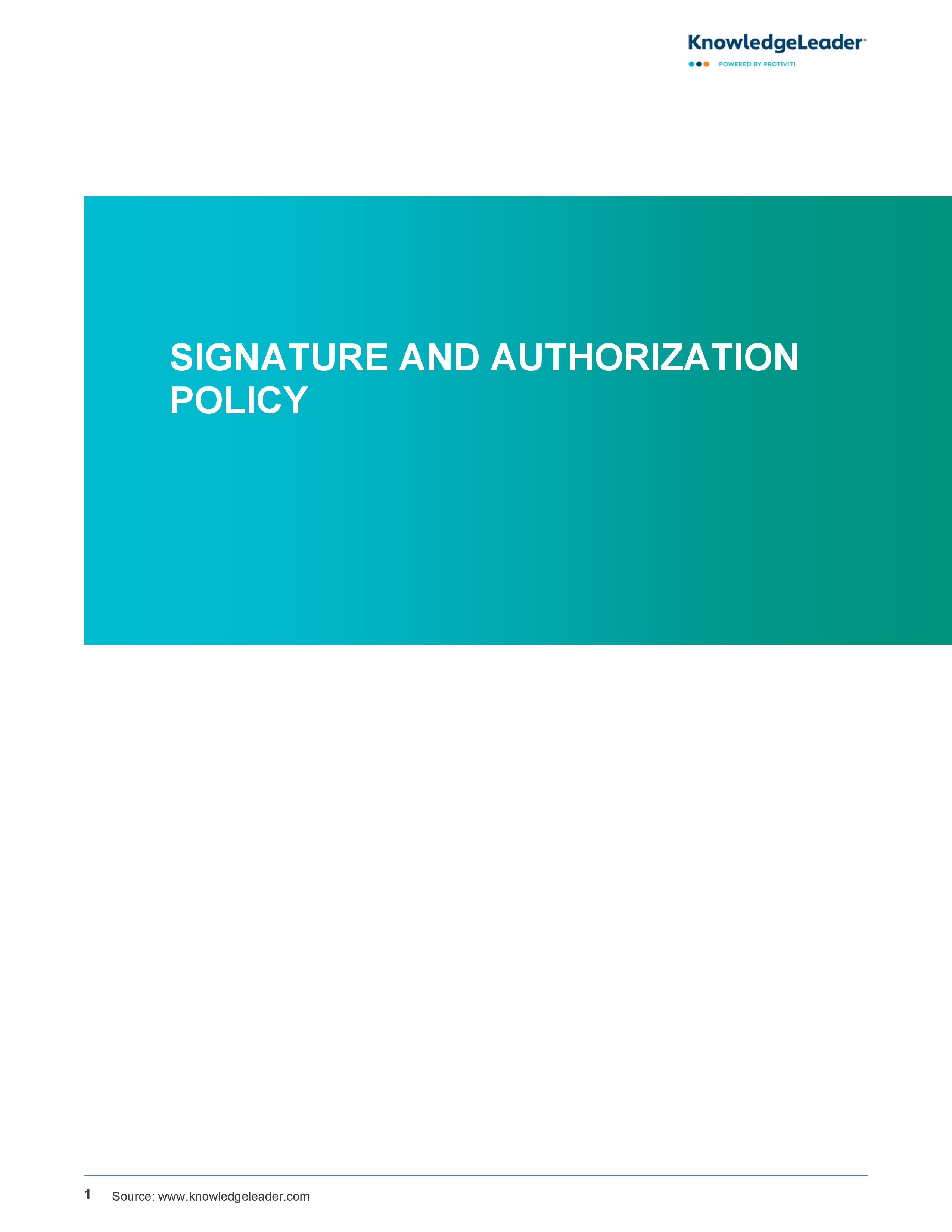Signature and Authorization Policy

Guidance for Setting Up and Enforcing Signature and Authorization Policies
Our Signature and Authorization Policy provides a comprehensive framework for managing the authorization of signatures required for various transactions within an organization. It includes three samples that outline specific procedures and requirements necessary to ensure that all commitments, including contracts, agreements and financial transactions, are appropriately authorized before execution. The policy is designed to safeguard the company by ensuring that only designated individuals have the authority to bind the company to financial commitments and legal obligations. This includes a detailed authorization matrix that specifies who can sign off on different types of documents and transactions based on their roles within the organization.
Furthermore, the document includes several samples of signature and authorization policies tailored to different scenarios within the company, reflecting the diverse needs of various departments. Each sample policy details the purpose, scope and specific procedures to be followed, emphasizing the importance of compliance with internal controls and legal requirements. The policies also cover provisions for handling exceptions, the delegation of signing authority, and the documentation required to support the authenticity of the signatures. This ensures that all actions taken under these policies are traceable and verifiable, enhancing the accountability and integrity of the authorization process.
Sample procedures include:
- By their signatures, signatories are certifying that Company X has granted them the authority to approve programs or payments.
- Delegations must be given in written form via email authorization or facsimile originating from the approved holder of the authority.
- Either the president or the chief financial officer may approve exceptions to this policy but not beyond the limits of their authority.
- Unless otherwise noted, if more than one party has the same authority/responsibility and one is not designated as a backup, then both or all are required to take action.